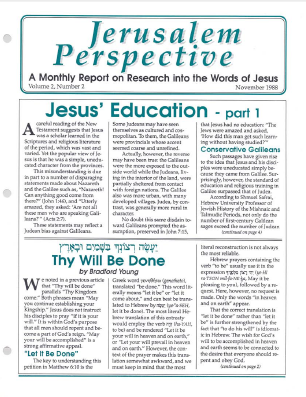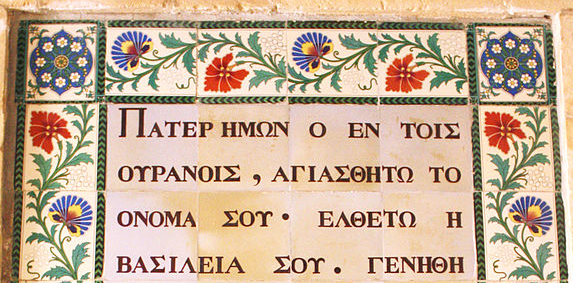This article belongs to the “Studying the Lord’s Prayer with Brad Young” series. For an overview of the entire series, click here.
We noted in a previous article that “Thy will be done” parallels “Thy Kingdom come.” Both phrases mean, “May you continue establishing your Kingship.” Jesus does not instruct his disciples to pray “if it is your will.” It is within God’s purpose that all men should repent and become a part of God’s reign. “May your will be accomplished” is a strong affirmative appeal.
“Let It Be Done”
The key to understanding this petition in Matthew 6:10 is the Greek word γενηθήτω (genēthetō), translated “be done.” This word literally means “let it be” or “let it come about,” and can best be translated to Hebrew by יֵעָשֶׂה (yē·‘ā·SEH, “let it be done”). The most literal Hebrew translation of this entreaty would employ the verb הָיָה (hā·YĀH, “to be”) and be rendered “Let it be your will in heaven and on earth,” or “Let your will prevail in heaven and on earth.” However, the context of the prayer makes this translation somewhat awkward, and we must keep in mind that the most literal reconstruction is not always the most reliable.
Paid Content
Premium Members and Friends of JP must be logged in to access this content: Login
If you do not have a paid subscription, please consider registering as a Premium Member starting at $10/month (paid monthly) or only $5/month (paid annually): Register
One Time Purchase Rather Than Membership
Rather than purchasing a membership subscription, you may purchase access to this single page for $1.99 USD. To purchase access we strongly encourage users to first register for a free account with JP (Register), which will make the process of accessing your purchase much simpler. Once you have registered you may login and purchase access to this page at this link:
































































































